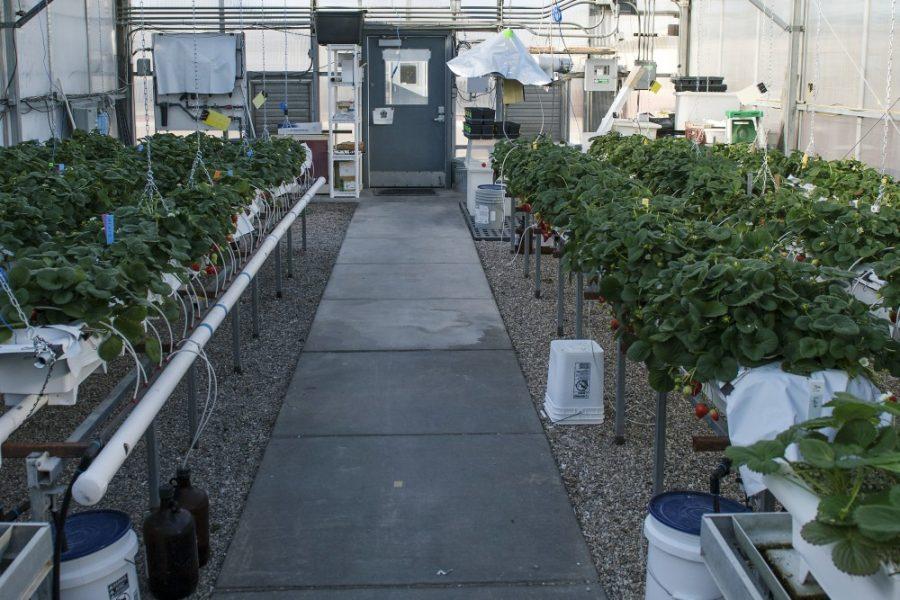A team of UA researchers is trying to bring strawberry production to Arizona.
Chieri Kubota, a professor in the School of Plant Sciences, and her team are experimenting with greenhouse produce-growing styles in different counties to find a way to grow strawberries hydroponically in this desert state.
“There [have] been studies in the past for strawberry production outside in season, so the strawberry itself is not new, but hydroponic production is,” Kubota said. “Therefore, I felt it was important to bring to the state of Arizona.”
Growing strawberries in greenhouses is not a new concept, according to Kubota. Many foreign countries, such as Japan and those in Europe have been doing this for years, she said, but it wasn’t until 2000 that the University of Florida decided to bring the concept to the U.S.
“[The University of Florida] demonstrated great work in Florida, but our research is different because of our climate,” Kubota said. “You can’t compare the two states.”
Kubota said that every single state needs to do its own study. Arizona has very mild winters with a dry climate, making research difficult, according to Kubota.
After four years of research, the team is now confident enough to present its data, according to Mark Kroggel, a research specialist at the School of Plant Sciences.
“We are hopeful that greenhouse-grown, high-flavor strawberries will be available here in Tucson soon,” Kroggel said. “We have developed the production systems well enough so that we are ready to introduce them to growers who are interested.”
Because strawberries are somewhat challenging to produce this way, it will take growers a couple of years to become proficient, according to Kroggel. He said, however, that there is no reason that the growers cannot be successful, especially when varieties bred specifically for winter greenhouse production become more available.
UA undergraduate and graduate students are both supported by the grant funding the project; they are getting the opportunity to learn about crop production and plant physiology by working on the project, Kroggel said. The researchers hope this research acts as a “seed project” that will result in further research.
“Maybe this year’s freshmen will be eating great-tasting, locally-grown strawberries before they are seniors,” Kroggel said.








